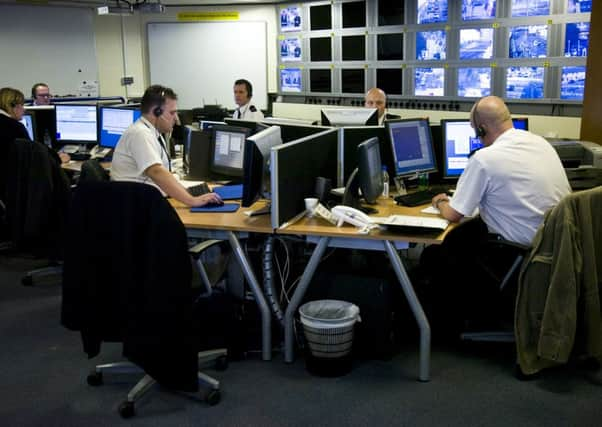Police and fire control rooms to close


Following a lengthy meeting in Glasgow, members backed Police Scotland plans aimed at saving £74 million by 2026.
Police chiefs said there would be no public consultation on the plans.
Advertisement
Hide AdAdvertisement
Hide AdIt means Dumfries, Glenrothes, Glasgow Pitt Street and Stirling control rooms, as well as two in Aberdeen, are set to close.
Govan, Motherwell, Bilston Glen in Midlothian, Dundee and Inverness will remain open.
Police chiefs also revealed they want more officers in the control rooms.
The proposals have already proven hugely controversial, with concerns that a lack of local knowledge in some areas will slow down responses and put lives at risk.
George McIrvine, Police Scotland branch secretary for Unison, said: “If these cuts go through, the public need to understand that when they phone 101 they could be speaking to a central control centre hundreds of miles from where they are.
“This is on the back of the decision to shut or reduce the hours of about 60 of the 214 local police counters. There already is a lot of anger in local communities.”
Authority members sought assurances that senior officers would bring evidence of improvements to service, that staff with jobs under threat would be supported, and that areas outside the Central Belt would not suffer in the long term.
Authority member David Hume said: “Evidence from views that have come in from areas like Dumfries and Galloway is that the cumulative effect could work to disadvantage the non-Central Belt areas.”
Advertisement
Hide AdAdvertisement
Hide AdChief Constable Sir Stephen House replied: “We’re talking to other agencies there about what skills our staff have and how those skills might be transferable.”
Vic Emery, chairman of the SPA, asked if the plans were radical enough.
“Why not have a single call centre instead of five?” he asked.
But Sir Stephen replied there was a need for back-up, in case of a power failure or other problem, and none of the control centres were big enough to house all the staff needed.
Although the percentage of police in control rooms will rise, that should not mean a loss of officers on the beat.
At present, there are 595 civilians and 302 officers in control rooms across Scotland, but if 212 staff go as intended, the remainder will be closer to the 55-45 split that chiefs hope for.
Police also rejected the possibility of a public consultation, arguing the plans would not change the nature of the service, but improve it.
However, politicians condemned the plans.
Alison McInnes MSP, Liberal Democrat justice spokeswoman, said: “This is shocking. In the space of five hours, the network of frontline emergency control rooms around Scotland has shrunk to the Central Belt.”
SEE ALSO: